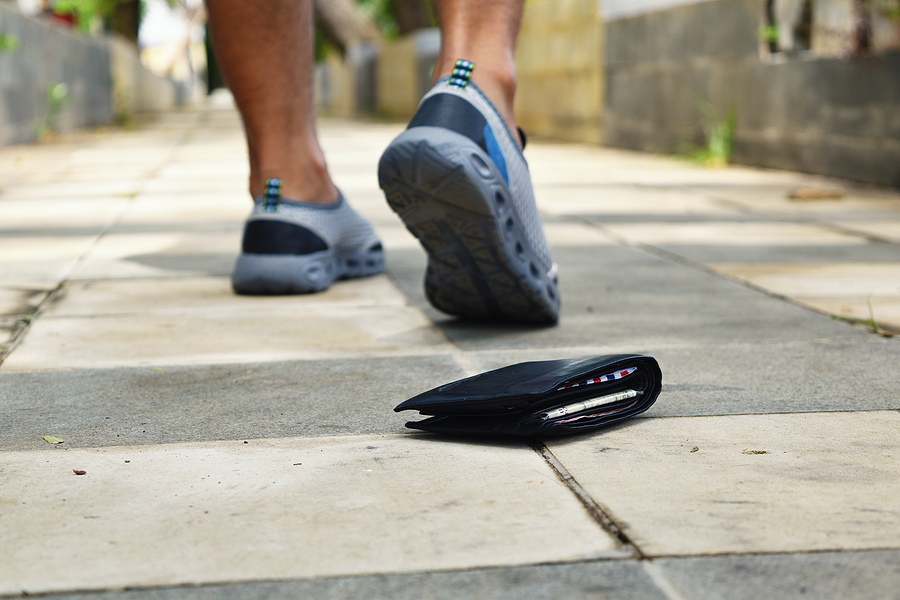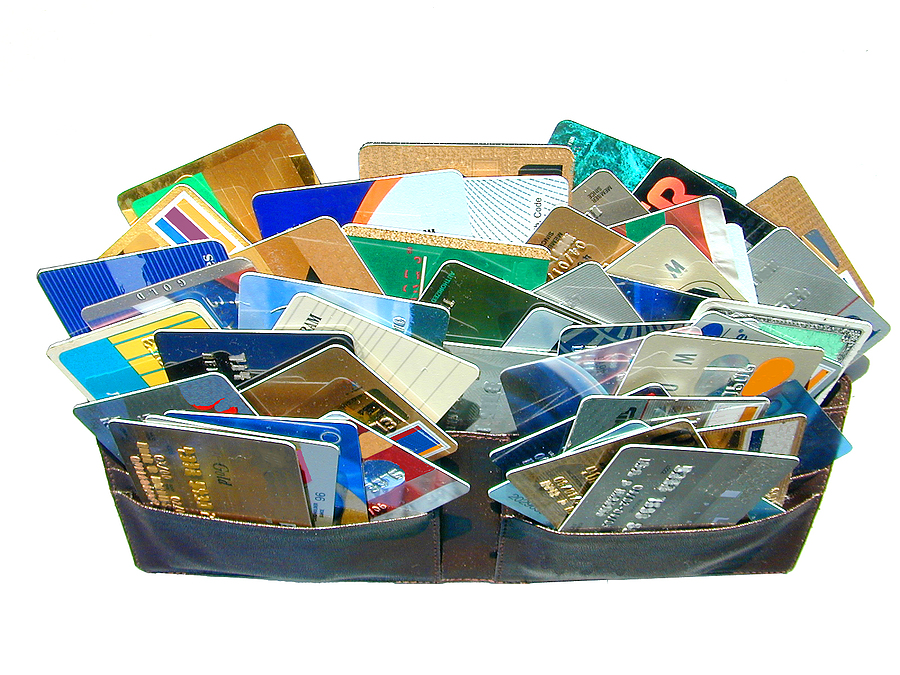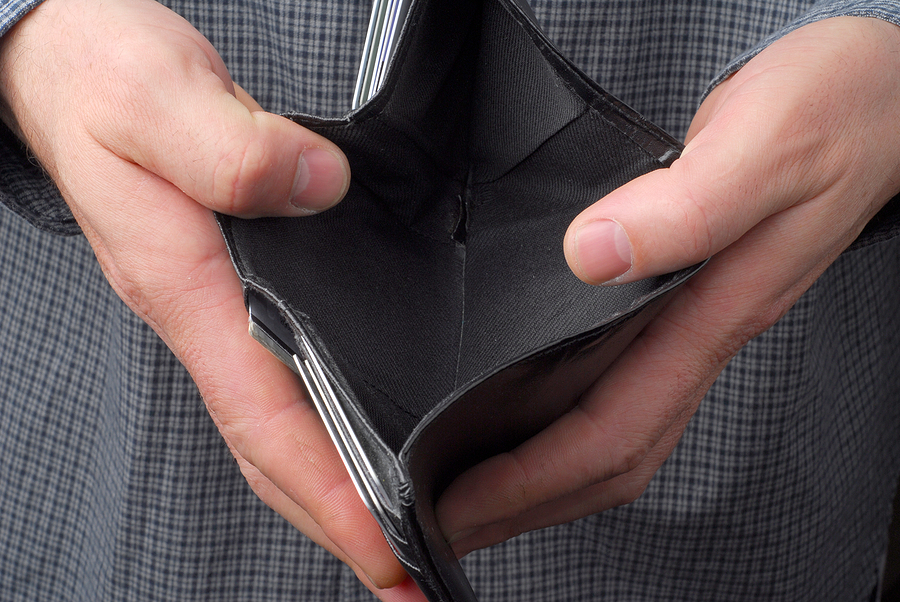It’s easy to panic when your wallet turns up missing. It not only contains all the stuff you need to buy groceries and pay for gas, but it’s also a fountain of financial information. If it falls into the wrong hands, someone can drain your bank accounts and rack up severe charges on your credit cards.
But don’t worry — identity theft isn’t a guarantee every time you misplace your wallet. There are ways to protect your info and retrieve what you need to make important purchases. Here’s how:
Call Your Bank
While it’s unlikely you’ll ever see the cash from your wallet again, you can make sure that’s all the money you lose. To prevent someone from taking out more cash from an ATM, you’ll have to call your bank immediately and let them know your debit card is MIA. They’ll send another one in the mail.
Your bank can put a temporary hold on all your accounts to prevent someone from using them. This hold also protects you against purchases that happen before you lock down your checking account.
At most, you’ll have to pay $50 for a fraudster’s shopping spree. However, if you manage to report your card missing before fraud happens, you’ll be off the hook for the entire bill.
Call Credit Card Companies
Money’s even easier to steal when someone has your credit card number. Unlike your debit card, they don’t need a password to use it online or in person.
Calling your credit card companies formally flags your accounts for any suspicious activity, so you won’t be responsible for any purchases you didn’t make.
Credit card issuers have a different policy than the typical bank, so they generally won’t hold you responsible for any purchase. This means you’ll pay $0 for any charges you can prove are fraudulent.
Your call also stops any future fraudulent charges. As soon as your credit card issuer hears that your card is missing or stolen, they’ll send you a new card with a new number. This deactivates the old one, making it useless to anyone who finds it.
File a Police Report
It may feel silly involving the police, especially when you’re certain you’ve just misplaced your wallet. But it’s important you file a report, whether or not your wallet was stolen.
A police report is an official record that your wallet went missing. You can point back to this report should a fraudster attempt to use your cards or open fraudulent direct payday loans in your name.
You’ll find it easier to dispute any fraudulent activity that happens after your report, as it proves your banking information was already vulnerable by that point.
Contact a Credit Agency
You’ll want to get in touch with one of three major credit reporting agencies about your situation. The first agency is required by law to share the alert with the others, so you won’t have to contact all three.
A lost or stolen wallet doesn’t guarantee you’ll become a victim of fraud, but it does significantly increase your risk. Your chances are higher if you keep any need-to-know documents hidden in the folds of your wallet, like your Social Security Number or insurance card.
With your driver’s license and SSN, a thief has what it takes to open direct payday loans or cash advances in your name.
Payday loan direct lenders may check credit and other financial details of the application, but they have no reason to suspect it’s fraud if this information checks out. The only way they’ll know if something’s fishy about the application is if you flag your credit report or put a freeze on your credit.
Freezing your credit means that your file is off-limits to any financial institution, making it so that payday loan direct lenders won’t be able to review or assess your credit report. Without this info, they can’t complete their underwriting process to issue any funds.
A freeze can prevent fraudsters from opening easy payday loans in your name. However, it does nothing to impact any payday loans an identity thief has already opened.
It’s also important to note that you won’t be able to take out genuine personal loans or lines of credit while this freeze is in place. A freeze stops all new activity on your credit file, even if you’re the one applying for funds.
Address Fraud in Your Report
If you find suspicious activity in your file, get in touch with the credit agency right away. Each of the major reporting agencies has an identity theft and fraud portal that makes it easy to dispute any payday loans or lines of credit you didn’t open.
Although the step-by-step process may be straightforward, it can take some time, so don’t expect to see your fraudulent accounts disappear overnight. According to the Fair Credit Reporting Act, it can take up to 30 days to see your dispute resolved.
Start Replacing Cards
Once you’ve contacted the appropriate authorities, it’s time to rebuild your wallet. In addition to your bank and credit card companies, you’ll want to talk to the DMV to re-issue your license.
You should also replace your SSN and birth certificate if they went missing, but this time, don’t put them back into your wallet.
These documents act as keys to your financial profile, so you’ll want to keep them in a safe place. Hide them with your passport and other confidential info where the wrong people won’t find them.
In fact, be a little more discerning about any card you put in your wallet. The less you have there, the less you have to worry about should your wallet go missing again.
Bottom Line
Losing your wallet or having it stolen is no picnic, but it’s not as dire a situation as you might think. As long as you follow this guide quickly, you can minimize your liability if a thief gets their hand on your financial info.
That said, it’s enough work that you won’t want to do it again any time soon. So, remember to limit how much you carry in your new wallet, and be more careful of where you leave it. These tips can save you a lot of grief in the future.
Image Source: BigStockPhoto.com (Licensed)
Related Categories: Legal, Money, Reviews







